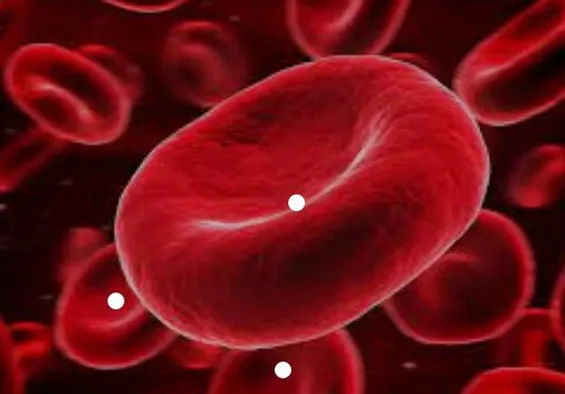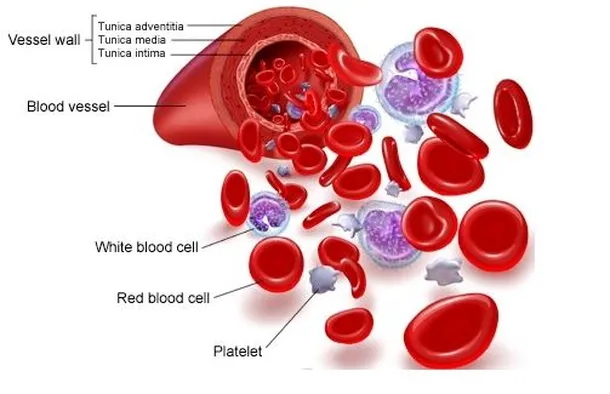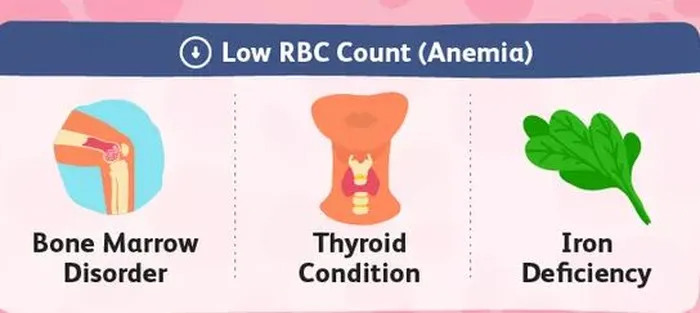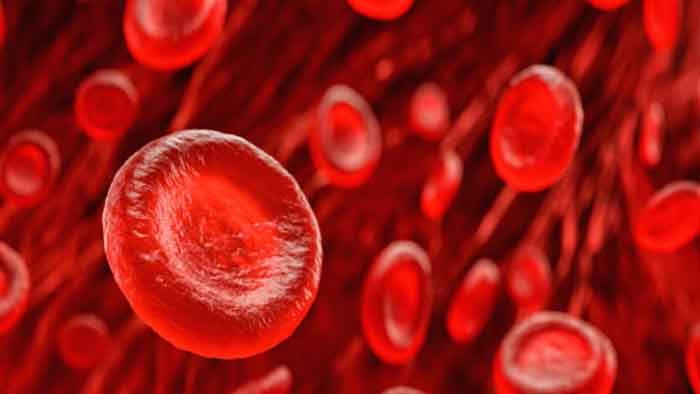An RBC count is a blood test that measures how many red blood cells (RBCs) you have.
Red blood cells, also called erythrocytes, are cellular components of blood, millions of which in the circulation of vertebrates give the blood its characteristic color and carry oxygen from the lungs to the tissues.
The mature human red blood cell is small, round, and biconcave; it appears dumbbell-shaped in profile. The cell is flexible and assumes a bell shape as it passes through extremely small blood vessels. It is covered with a membrane composed of lipids and proteins, lacks a nucleus, and contains hemoglobin—a red iron-rich protein that binds oxygen.

Why do I need an RBC count?
According to the American Association for Clinical Chemistry (AACC), the test is almost always a part of a complete blood count (CBC) test. A CBC test measures the number of all components in the blood, including:
- Red blood cells
- White blood cells
- Hemoglobin
- Hematocrit
- Platelets
An RBC count is usually carried out as part of a full blood cell (FBC) count.
Women usually have a lower RBC count than men, and the level of red blood cells tends to decrease with age.
A normal RBC count would be:
Men – 4.7 to 6.1 million cells per microliter (cells/mcL)
Women – 4.2 to 5.4 million cells/mcL
Symptoms of an abnormal red blood cell count
If your RBC count is too high or too low, you could experience symptoms and complications.
If you have a low RBC count, symptoms could include:
- Fatigue
- Shortness of breath
- Dizziness, weakness, or lightheartedness, particularly when you change positions quickly
- Increased heart rate
- Headaches
- Pale skin
If you have a high RBC count, you could experience symptoms such as:
- Fatigue
- Shortness of breath
- Joint pain
- Tenderness in the palms of the hands or soles of the feet
- Itching skin, particularly after a shower or bath
- Sleep disturbance
A high RBC count could be caused by a number of health conditions or health-related factors, including:
- Smoking
- Congenital heart disease
- Dehydration (for example, from severe diarrhea)
- Low blood oxygen levels (hypoxia)
- Pulmonary fibrosis (a lung condition that causes scarring of the lungs)
How is a high red blood cell count treated?
If a medical condition is causing a high red blood cell count, your doctor may recommend a procedure or medication to lower it.
In a procedure called phlebotomy, a health professional inserts a needle into your vein and drains blood through a tube into a bag or container. You might need to have this procedure on a repeated basis until your red blood cell level is close to normal.
If you are diagnosed with the bone marrow disease polycythemia Vera, your doctor may also prescribe a medicine called hydroxyurea to slow your body’s production of red blood cells. You’ll need to see your doctor regularly while taking hydroxyurea to be sure your red blood cell level does not drop too low.
When a person does not have enough functioning red blood cells (RBCs), they have anemia. A low RBC count can cause a variety of symptoms and health complications.

Who may have a low RBC count?
Anyone can develop anemia. However, certain people may be at a higher risk of developing the condition, including:
- Pregnant people
- People experiencing heavy periods
- People over 60 years old
- Young children
- People taking blood thinners

Diet
A low RBC count usually occurs when a person does not eat enough essential nutrients. Eating more nutrient-dense foods can give the body the necessary tools to create functional RBCs. People can also take these essential vitamins and minerals as supplements, although it is best to get nutrients from foods in the diet if possible.
If you have a diagnosed blood condition that may affect RBC count, or you’re taking any medications that affect your RBCs, your doctor may order the test to monitor your condition or treatment.

